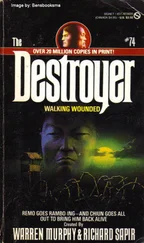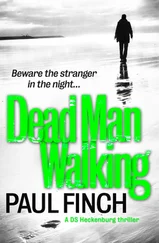I licked maple frosting off my pershing while I listened. It was a disgusting habit, but I’d been eating doughnuts that way since I could remember. First maple sweetness, then cinnamony goodness beneath it, spiraled in a flat roll bigger than my palm. Yum. I had to wipe my mouth to ask, “That was it? Nothing else at all?”
Billy shook his head. “He said it was quiet, that Redding entertained him with stories about his family, but that was about it. He never saw what hit him. Usually they don’t when it comes from behind.”
“I don’t remember seeing anything about Redding’s family.” I dropped my doughnut, appetite gone. “Do I need to talk to them?”
“No, Chan said they were killed in a wreck years ago. A wife and two little girls. Redding liked to talk about them, and never got married again. He still wears his wedding ring. Chan figured that was love.”
“Oh.” My appetite, fickle thing that it was, came back immediately upon realizing I didn’t have to go break bad news to an unsuspecting wife. “That’s too bad.”
“Yeah. I hope we find him alive. I—Who is that guy?”
I turned to see Daniel Doherty opening the O’s front door. I didn’t think he could be looking for me specifically, unless somebody’d told him when Billy and I radioed to say we were heading back to the office, in which case I was going to pull someone’s toenails out. Doherty’s gaze roved over the café in the way that strangers in a strange land look: as if they know they’re the wrong type to hang out there but that they’re shy on choices, yet still willing to turn tail and run if the territory looks too unfriendly.
I did my best to look unfriendly.
His expression of surprise, then relief, told me that one, he hadn’t been looking for me, and two, that he would now cling to me like a leech. Briefcase in hand, he scurried over to our table. “Detective Walker.”
“Mr. Doherty.” I had a pretty good growl when I wanted one, but it failed to deter him. He offered Billy a hand, saying, “Daniel Doherty, it’s a pleasure to meet you. May I join you?”
Billy picked up on my subtle “no” signal—I was kicking him under the table—and said, “Yeah, sure, Mr. Doherty. We were just discussing a murder case. What do you do?”
I kicked him one more time. Doherty put his briefcase down, tugged the thighs of his pants up an inch and sat. “I’m in insurance. I was at your office today to talk to Detective Walker.” He procured a rueful smile that was probably meant to be charming. “I’ve been waiting for her to come back, and someone was kind enough to tell me I could get a decent cup of coffee here.”
“Why the hell are you here on a Sunday, anyway?” I demanded. “Don’t you have a family to go home to?”
“Actually, no,” he said pleasantly, “but I came in because I believe your schedule gives you the next two days off, and I didn’t want to miss you in case you had plans that took you out of town for your weekend. Really, I won’t be in your way, Detective. I’ll just be an observer. I could have even done this without informing you, but that approach always makes me feel like something of a Peeping Tom. It’s an unpleasant sensation.”
Not nearly as unpleasant as my elbow breaking his nose was going to be. Billy looked back and forth between us like we were a Ping-Pong match. “Committing insurance fraud, Joanie?”
Of all the things he didn’t need to say right then. I savaged what was left of my pershing. “It’s about the vandalism Petite suffered earlier this year, you jackass. The insurance doesn’t like that me and my nice neat driving record suddenly had a slew of claims even though that’s exactly why I pay full coverage.”
“Oh. Crap.” Billy shifted uncomfortably. “Sorry. If I’d known it was Petite I wouldn’t have cracked a joke.”
Doherty’s eyebrows went up. “Why not?”
“Because Walker has no sense of humor about her car. It’s like making apartheid jokes to Nelson Mandela.” Billy, coward that he was, stuffed most of his remaining doughnut into his mouth and choked it down with coffee. “I’m going to check out Redding’s apartment, see if we luck out and he’s home, or if anybody knows anything about enemies. See you at the office.”
For a guy complaining about weight gain, he blew out of there like a race car, leaving me with Mr. Doherty. We stared at one another for a moment before he said, “I feel like we’ve gotten off on the wrong foot, Det—”
“There is no right foot. I gather that, short of pouring you into a concrete block and sinking you in Puget Sound, I’m not going to get rid of you. Fine. Go do your job from stalker distance. I don’t want to see you again. And I swear to God, if there’s one hint, one whisper, of raising my rates or not paying up, I’ll have you and your company in court so fast it’ll make your head spin.” I didn’t know if I had a leg to stand on. I didn’t care if I had a leg to stand on. Threats made me feel better. “I have more important things to do than cater to your comfort level while you decide whether to give me the service I’ve been paying a premium for. Now, if you’ll excuse me, my goddamn partner’s not actually supposed to go visiting sites without backup, so I need to catch up with him and do my job.”
I shoved away from the table and stomped out after Billy.
Billy had the grace to look apologetic when I caught up to him. I muttered dire imprecations and we called it good without actually discussing anything, which was how I preferred to resolve temper tantrums.
Archibald Redding lived in Ballard, not particularly convenient to his job, but if he’d lived there more than a few years, it was probably right on the money for what I imagined a security guard’s salary to be. There was no answer when we knocked on his door, but the building manager, a sturdy woman in her fifties, let us in without a warrant when Billy explained the situation.
The two-bedroom apartment was the epitome of a Felix bachelor’s pad: tidy to the point of looking almost un-lived in. His bed was neatly made, his clothes were hung up or folded, and the bathroom sported a carefully rolled toothpaste tube and inexpensive aftershave with an inoffensive smell. A lone, clean pot in the kitchen sink and an old-fashioned teakettle on the stove suggested Redding’s cooking skills were rudimentary, not that I had any room to point fingers. The building manager trailed along behind us, setting imagined wrongs to right as we went through the rooms. “He’s a nice man. Always pays rent on time. Always stops to ask how you’re doing. Oh, but that’s what they always say, isn’t it?” She put her hands over her mouth, eyes large. “‘He was such a nice man.’ And then you find body parts in the freezer.”
Billy and I exchanged glances and I went back to pop the freezer open. It didn’t even have TV dinners, much less body parts: there were carefully labeled packages of fish and chicken breasts, and bags of frozen vegetables. “He must have another freezer,” I said, trying to sound cheerful and reassuring. Somehow it came out macabre, and the poor building manager made a sound of dismay. Billy gave me a look that I probably deserved, then escorted the woman toward the front door, plying her with questions: how long had Redding lived there? Did he have friends we could talk to? Had she known his family?
The opportunity for gossip snapped her right out of her worries. “Oh, no. They died a long time ago. Archie’s been living here twenty years, longer than I’ve been managing, and it’s always been just him. Seems like a real tragedy, such a nice man living on his own, but he says true love never dies, and tells stories about his little girls. We have a Tuesday-afternoon bingo game he joins us at, so I’d say all of us are friends. I can get you a list of all the names, if you like.”
Читать дальше
Конец ознакомительного отрывка
Купить книгу










